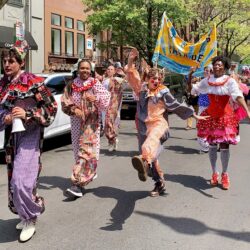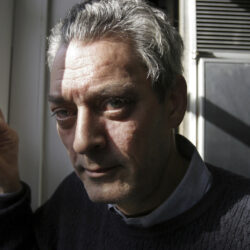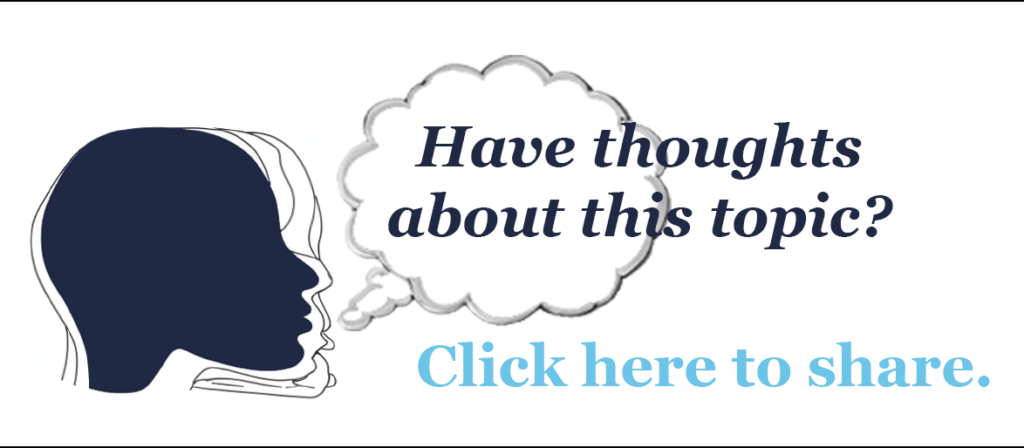
Finding Harmony in Dystopia
Girlpool’s Harmony Tividad emerges as a solo artist with EP Dystopia Girl

Photos: Matt Weinberger
 Harmony and I are sitting in a concrete backyard. We crawled through the other side of a locker at a pest control store to get here.
Harmony and I are sitting in a concrete backyard. We crawled through the other side of a locker at a pest control store to get here.
We’re at The Shop: my friends Matt Weinberger’s new studio. Outside, the storefront sells wares for a pest control company. If you shimmy through a storage locker behind the counter, you arrive at a sprawling arts space. In some Southeast Asian countries, there are perpetual stews: pots that boil for years as stew is spooned out and new ingredients added round the clock. The Shop is the perpetual party. Instruments, cameras, ladies shoes are scattered around. The locker is always opening to the crawl of some downtown persona. Other than that, not a pest in sight, but also no A/C. Harmony and I are in the backyard, on an unusually hot day, melting, the surrounding walls high octane blue, freshly painted and already tagged again.

Originally, I had planned for us to meet at the Yoko Ono installation at Faurschou Gallery, Greenpoint’s hidden treasure, where a hundred dogwood and evergreen trees were planted in wooden coffins in a long white hall. Digitally modulated birdsong played overhead on a loop, eerie in its stripped-down even keel. A sedate realm, redolent of technological singularity. Perfect backdrop to talk about Harmony’s new solo project Dystopia Girl.
But when I called that morning, a staffer said the exhibition had closed ahead of schedule. Some of the trees weren’t faring well and they were taken out of sweet eternal zazen to be planted in the Under the K Bridge Park. They were removed from their coffins a la Lazarus and planted amidst birds sans autotune and the commuter thrum of the BQE, bearing witness to the vastness and discomfort and yearning and lightning encounters of the people of the 21st century.
Dystopia Girl is also about being swirled in the madness of it all, continuously inventing the levity to keep your magic alive.

Harmony’s emergence as a solo artist marks a tonal shift from her decade-long career as half of the indie darling rock band Girlpool (with Avery Tucker), which parted ways in 2022 after their album Forgiveness. On Forgiveness, you can feel a singular dream become dual track: songs alternate between Harmony’s lean towards indie-pop, Avery’s pull towards a 90’s garage rock.
Dystopia Girl is indulgent and glitzy industrial hyper-pop. It’s unapologetic, asking when depth became synonymous with seven-syllable words and ironic detachment. On the music video of the titular track, Harmony frolics in a small room plastered floor-to-ceiling with images of her as the room grows more turbulent and pictures crash down. She gazes placidly at the upheaval of identity, just another season arriving.
On Shoplifting From Nike, Harmony sings “How do I know when I’m losing to a dream I could be using?”. Her and her friends cavort against the backdrop of materialism and consumption, playful and bright amidst the strange blend of excess and corporate dullness of malls, gaming halls, amusement parks.
Good Things Take Time is a bouncy, jubilant epic to patience and belief. In the video, Harmony, rocking tooth gems and a glowing ballerina fit, preaches to an assembly of women, “I come to you as a divine tchotchke…” and encourages them towards self-satisfaction. The first lines are hymnal “Everyone’s forgiven, everyone is free.”
The EP plays with a sacredness in banality; a spiritualism within materialism, within dreary corporate structures and crowded sidewalks and American Beauty-esque trash bags lifted by wind. It’s recognizing how the impulse behind the mass economy of kitsch stems from something pure and seeking in all of us.

Dystopia Girl follows Forgiveness, but it’s such a different vibe. What do you think about the difference?
Forgiveness is about this longing to feel that life is concretely meaningful, which is something I’ve struggled with. These songs were written during this end chapter of having an unhealthy relationship with myself and the way I needed validation. Forgiveness was the blood into Dystopia Girl. The new album has this optimism and it’s written around the time that I met my partner. I hadn’t felt that understood or seen before, with a romantic partner. I’d hadn’t ever known that kind of love before and it was really healing.
Tell us more about the imagery behind Dystopia Girl.
I’ve always been interested in the capitalist dream realized and held a fascination for these structures all around us that we have just become immunized to really seeing, factories, power lines. I remember driving past this unreal art-deco styled Power Plant in Pasadena one day and that image stayed with me. It became the concept behind the Powerplant Girlpool album. I guess I wanted to explore femininity in harsh surroundings and being delicate in a world that doesn’t cater to your sensitivities.
I definitely get that, and at the same time, the EP has this free, dancehall, living in the moment feel.
Exactly! I wanted to make pop for a long time and also.. it’s also about accepting that the world is messed up and you become fraught just by living in it. But I still want to have fun and indulge and not be preachy. I think there’s so many valid ways to navigate reality. And I wanted to ask: Is there value in living in a sincere way in the world today?
Right, and I think there was this big emphasis on trying to appear effortless that is now going out of style.
Yeah, the irony of so much work to maintain that appearance. I like those TikTok videos where people have been breaking down how much time and money they spend on beauty treatments a month and it’s overwhelming.
You’re originally from Hollywood, right?
I grew up right in the center of Hollywood. As a kid, I was obsessed with Disney and musical theater and pop stars. I would look up their astrology charts and try to understand them.
But growing up, I actually felt really disempowered and hopeless. All the people were enamored with this ideal. I understood perfection at such an early age and I felt like I would never be able to be that. I was a punk kid. I developed this unintentional way of living my life as a trauma response. I was always just ending up at things.
I ended up moving out of LA for awhile, because I felt so unwelcome. But now I can see that everything is just your projection. If you decide to be yourself wherever you are, that’s the most powerful decision you can make.

I’ve heard you talk about that on your podcast, h.a.g.s. You discuss a lot of psychology themes.
I’ve always read self-help books. As an adult, I take any wisdom I can get from anywhere. Anything that’s trite and intentional and trying to teach you something? I’m like let’s sit down and listen.
What was it like writing the songs alone? Did your process change?
I am a very annoying person. [laughs] No, but I’m very intense about my songwriting process and it feels very spiritual. I am good at writing with people, but I can’t stand it if they give me feedback. I need to be able to tap into myself, in a way that there’s no chatter. The people I’ve worked closest with know that I’m going to need to sit in a corner by myself. I think a lot about how it has to feel like the natural order, like the same breath or the natural flow of your subconscious – the order you would think about all these things.
Like viewing a work as some captured and articulated motion of the soul. I love that.
Exactly. I can’t sing about something that doesn’t feel important to me. Even a line that doesn’t mean anything. Like Nike, it has a trite exterior but it’s a deep song to me.
What’s next for you music-wise?
The Brooklyn show was so surreal and I honestly felt transcendent that night. I haven’t felt that way in a long time. The next EP, I want it to be a little darker. This EP was bubble-gum in a fun way. Now I’m experimenting with a stripped-back sound. Barely any instruments, pretty much my voice and nothing else.
Can’t wait, that sounds incredible. Last question for you; do you have any advice for people that want to create artistically and are just starting out?
Just do it and trust. You have to trust yourself in a way that’s not superficial. You have to be in the flow of what your needs are in your day to day life. Trusting your needs and your intuitive energy are key. But also just doing it. I think people are too critical of the work. There’s always just stuff that you throw away, you don’t need to take it so seriously.
Janna Shaftan is a writer, engineer and journalist covering local wonders in her column Brooklyn Glimmer. Follow her at jannavrs@
Leave a Comment
Related Articles


Brooklyn’s Paul Auster, prolific writer and filmmaker, dies at 77

What they’re saying: live arts in Brooklyn this week, May 1

What they’re saying: live arts in Brooklyn this week, April 25
Leave a Comment

Brooklyn Boro
View MoreNew York City’s most populous borough, Brooklyn, is home to nearly 2.6 million residents. If Brooklyn were an independent city it would be the fourth largest city in the United States. While Brooklyn has become the epitome of ‘cool and hip’ in recent years, for those that were born here, raised families here and improved communities over the years, Brooklyn has never been ‘uncool’.
The Brooklyn Daily Eagle and brooklyneagle.com cover Brooklyn 24/7 online and five days a week in print with the motto, “All Brooklyn All the Time.” With a history dating back to 1841, the Eagle is New York City’s only daily devoted exclusively to Brooklyn.
© 2024 Everything Brooklyn Media
https://brooklyneagle.com/articles/2023/10/25/finding-harmony-in-dystopia/
